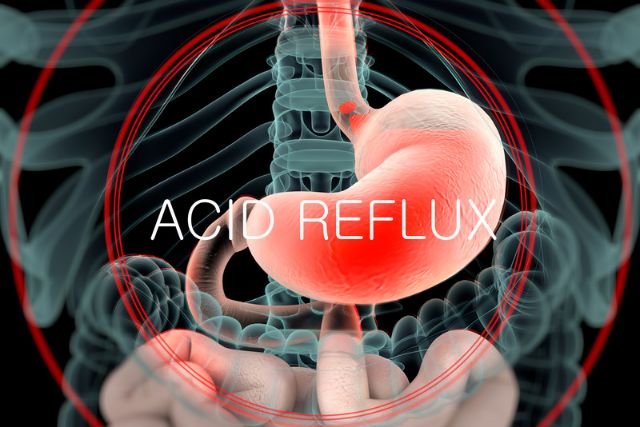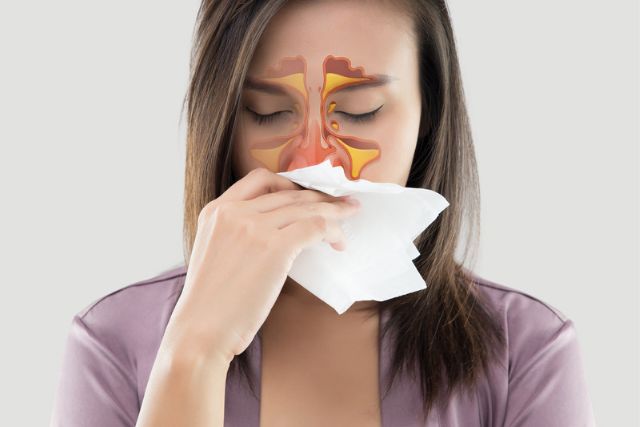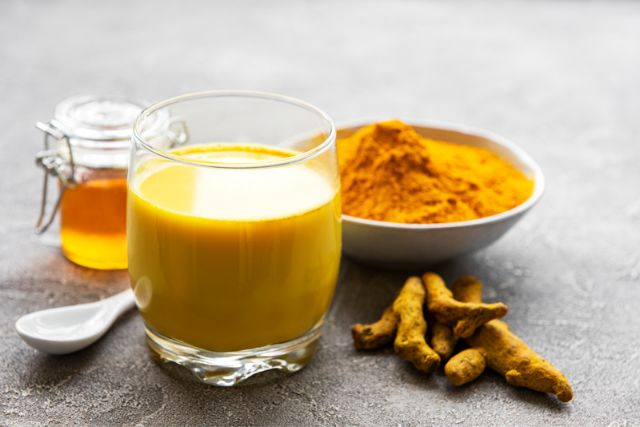6 Effective Home Remedies To Soothe A Throat Tickle
We have all experienced throat tickles, so I feel that we all would relate when I say this: throat tickles are the worst! They’re frustrating, painful, affect your speech, and make even simple tasks like consuming food and drinking water a big hassle. Alternatively, there is not much in the world that is quite satisfying as soothing a throat trickle. Is your throat hurting just like mine? Don’t fuss, read on to find some of the simplest ways to soothe a throat tickle.
What is a tickle in the throat?
A “throat tickle” is a general term used to denote a condition where your throat feels itchy and uncomfortable. Sometimes, a throat tickle leads to coughing and that is the end of it. Other times, even after coughing, throat tickles stay right in their place feeling like a heavy blurb in your throat or a rash-like sensation in your throat. Throat tickles are also often accompanied by a runny nose, dry cough, chest pain or a heavy feeling in the lungs, hoarseness in the voice, and a nasal block. Additionally, you may also feel as though there is a lump in your throat. Due to whatever cause that led to your throat tickle, your tonsils may start swelling and aching, causing discomfort.
The purpose of a throat tickle is to get rid of or indicate the acclimation of mucous in your throat, or the entrance of an outside substance such as smoke or dust. The cough is the action taken by your body to get rid of the unwanted substance (mucous or outside irritants).
Common Causes of A Throat Tickle
Usually, throat tickle comes about as a symptom of an infection, inflammation in the upper respiratory system, or an allergic reaction. Here are the most common causes of throat tickling:
Common Cold

A throat tickle is most commonly experienced when one has a common cold. The common cold is caused by a range of viruses and is generally not that serious. A runny nose, congestion, coughing, and fever are some common symptoms.
In a common cold, your nose gets blocked with a cough which results in a postnasal drip in your throat. When your nose is overfilled with a cough, a lot of mucous tends to drip back into your throat. Sneezing and coughing are automatic mechanisms through which your body attempts to get rid of them. This post-nasal drip causes throat tickling. Sometimes, even when your common cold is gone, throat tickling stays on for a while. This is normal and generally gets better within 2 weeks. Prolonged coughing and cold, however, may be signs of a bigger problem.
Acid Reflux

Acid reflux refers to a condition where the digestive acids from your stomach end up in the oesophagus (food pipe). This can often lead to heartburn, irritate your food pipe’s lining, and cause a burning sensation starting from above your stomach. You might know it as a more common term known as “acidity”.
Often people with acidity are unaware that their stomach problem can also lead to cough, as it infects your upper respiratory tracts. As a result of this cough, inflammation from the acids, and discomfort – a throat tickle may arise.
Inflammation of the Voice Box
Have you ever “lost your voice”? This is something that can commonly occur when you stress your vocal cords too much while say, singing in a high pitch. Such stress on your vocal cords can lead to hoarseness in your voice along with an inflamed, uncomfortable feeling in your throat. This condition is also known as laryngitis and can be behind a throat tickle.
Your throat and voice box can also be inflamed by environmental factors such as dust, pollution, smoke, or simply after coming in contact with a substance you are allergic to. This can, again, be the cause of throat tickle.
Sinus Infection

Sinuses refer to a system of cavities that connect your nose and skull. In some cases, cough or infection can reach your sinuses causing headaches, facial pain, blocked and runny nose, and a ticklish throat. Sinus infections tend to accompany other cough infections such as the common cold. They usually can be resolved by remedies or clear up after a couple of weeks on their own.
Other Possible Causes Behind A Throat Tickle
- Asthma
- Non-allergic Rhinitis
- Obstructive airway disease
- Anaphylaxis
- Lung disorders
- Post-infectious nasal drip
- Throat cancer
Home remedies for a tickle in the throat
A throat tickle is a common condition and one that tends to be easily fixable. Since it is often a symptom of an underlying condition, in some cases, the treatment is to get to the cause of the throat tickle.
However, if your throat tickle is caused by comparatively minor issues, you’re in luck! There are tons of remedies to treat a throat tickle, some being used for centuries while others being more innovative and modern. Here are 6 of the best ways to soothe a throat tickle:

Ginger has unique properties because of which it is a pretty popular cough remedy. Biting into a piece of ginger might not be many people’s favourite thing to do, but it sure is effective in treating a throat tickle! Apart from having spicy juices that effectively clear out your cough, the ginger herb has antioxidant and anti-inflammatory properties that serve to strengthen your immune system to treat a cough.
Here are simple steps to make ginger tea:
- Grate about 1 inch of ginger.
- Pour 1 and a ½ cups of freshwater into a pan. Add ginger to this water.
- Let the water boil on a stove until you can smell the fragrance of ginger coming from it.
- Filter out the residual ginger and pour the liquid into a cup.
- This is a basic ginger tea. You can add lemon to it if you wish to make it a little acidic and a teaspoon of honey if you wish to make your tea sweeter.
- It is best to drink your ginger tea while it is hot. However, be careful to not burn your tongue.
- Ginger tea without the extra lemon and honey can be used to gargle.
Honey

Honey is one of the healthiest sweeteners out there. Many herbal tea drinkers use honey as a healthy alternative to sugars in their drinks. But that is certainly not all it is good for! Not only does honey help with the throat ache you might feel during a cough, but it actively fights against cold viruses to clear up your throat.
You can use honey to treat a throat tickle by:
- Adding it to your hot beverages such as green tea or herbal teas.
- Eating a teaspoon of honey every morning.
Gargling
A unique thing about gargling as a sore throat remedy is that it is almost the only remedy that requires you to spit out your cough. This ensures that the cough or irritation in your throat is actively removed from your body and not simply swallowed into the system.
Gargling is a simple practice. All you have to do is:
- Warm some water up until it is hot enough to melt a congested cough. You don’t have to boil it as it might burn up your tongue.
- There is a range of things you can add to this hot water for effective gargling. We recommend you add salt and black pepper. The anti-infectious quality of salt and the spice of black pepper can make you feel instant relief from a ticklish throat.
- Pour the salt water into a cup. Drink up just as you would with a beverage. However, instead of swallowing the water, hold it in your mouth, particularly in the throat area. Try to stimulate your throat, like you would if you were screaming. Making a “kha” or “gha” sound also works.
- After holding the hot water in your throat for about 15-20 seconds, spit it out.
- Repeat this process for the entire cup of hot water
Drink Lots Of Water

Often many people forget to drink water when they have a cough or a ticklish throat. Other times people may assume that drinking water will not help but worsen their problems. Please note that this is completely false! Hydration is necessary when you have cough or throat problems.
Not drinking enough water can lead to a worsened infection and a dry uncomfortable sensation in your throat along with a throat tickle. Drinking water not only hydrates you but enables your body to fight infection better. Water is also effective in clearing cough from your oesophagus to a big extent. Warm water is best in this regard, but room temperature water also works.
Steam For Dry Cough
A dry cough can lead to a very uncomfortable throat tickle. It has a burning sensation that just does not seem to go away. Additionally, dry cough often can lead to discomfort in your blocked nose. Because dry cough consists of hardened mucous in your throat and nose, steam works best to treat. Inhaling steam essentially gets water in a gaseous form to enter your nostrils from within and clear out blocked ways.
You can take steam by
- A regular electrical steamer.
- Boiling some water in a big pan, and placing your nostrils over it. Cover your head with a towel for the best results.
Turmeric Milk

Turmeric is a herb loved by alternative medicine systems such as Ayurveda, thanks to its excellent healing, anti-inflammatory, disinfectant, and cleansing properties. Milk is good to soothe your body and give it some calcium and protein Tog.ether they make the drink of turmeric milk which has existed as a sore throat remedy for centuries. This remedy can be used right before you go to bed, as coughs tend to get worse overnight.
Here is a simple recipe for turmeric milk:
- Warm-up about 250 ml (1 glass) of milk in a pan.
- After it is warmed up pour it into a glass and add 1 teaspoon of turmeric powder into it.
- Add sugar according to your taste.
- Mix well. Drink up while it is warm.
How to prevent a tickle in the throat?
The only way you can prevent a future throat tickle is by determining what’s causing your throat tickle. If you are often having a ticklish throat, track down what you are eating and what kind of environment you live in to narrow down the cause. Here are some tips to prevent a throat tickle, most of which are cause-specific:
Dietary changes (for acid reflux)
If it is acid reflux that is causing your throat to tickle, it would be a good idea to always keep an antacid handy. Avoid eating food that is too spicy or acidic such as hot noodles, lemons, oranges, tomatoes, vinegar, high-fat foods such as fries, and chewing gums.
Instead, fill your diet with low-fat and water-rich foods. This includes watermelons, cucumbers, bananas, apples, lean meat, and seafood. Anti-inflammatory foods such as oatmeal and ginger also work wonders for acid reflux. Always stay hydrated.
Humidifier
Many people may have allergies triggered by dry air and dust. While it is an air purifier that will help you with pollution and dirt – humidifiers can work wonders for immediate triggers. Consider investing in one if it is viable for you. Dryness and tickling in the throat can be worsened, even inflamed in dry air conditions. Humidifiers add water to the air preventing your throat from getting itchy, drying out, or getting inflamed.
Avoid caffeine and smoking

Throat tickles are the worst when you are dehydrated. While caffeine is a drug many of us consume in our daily beverages, it has dehydrating, often stress-inducing effects on the body. It can make your body use up more water than usual, causing your throat to get ticklish with dryness.
Smoking is another practice that worsens the condition of not just your throat but also your lungs. It can and does inflame your upper respiratory tract, causing you the worst throat tickles possible. Moreover, smoking is dehydrating and thus can slow down your recovery process.
Always be prepared
Prevention is always better than cure. Even if you are not currently experiencing severe discomforting cough symptoms such as a bad throat tickle, a mild cough can indicate future problems. Instead of waiting for the worst, try to incorporate remedies such as gargling, and drinking herbal teas as a precaution when you have just caught a cold. It will save you a lot of time and hassle.
Additionally, if you are someone who is allergic to dust, pollution, or dry air – it is time you start taking concrete measures to prevent problems. In current times, we all wear masks when we go outside. However, cloth masks or surgical masks may not be enough for dust allergies. Invest in an anti-pollution mask instead, that can protect you much better.
Rest well

It is never a good idea to overexert yourself and ignore your body when it is asking for care and attention. If you are sick, give yourself a break and take proper rest. Make sure you get at least 8 hours of sleep when you are sick with cough and cold.
When to see a doctor?
Common cold has the word “common” in it for a reason. Often it is in fact not a big problem and goes away on its own. The same goes for conditions such as laryngitis and acid reflux. However, sometimes, these minor problems can manifest into much bigger diseases if they stay in your body chronically. Seek medical attention immediately if:
- Your cold or cough hasn’t gotten better after more than 2 weeks.
- You notice red or white bumps inside your throat.
- A high fever is accompanying your throat tickle.
- You chronically have a ticklish throat due to acidity.
- Your throat tickle is causing you severe distress and disabling you from doing regular daily activities.
- You have had a runny nose for over a month and constantly get chills in your body.
- You are having strong allergic reactions such as itchy skin, swollen lips, redness, and swelling.
- You are experiencing severe ear pain.
- You constantly feel low on energy and fatigued.
Upon a proper diagnosis, a doctor may determine the proper cause of your symptoms. This can follow with a cause-specific treatment or general cough treatments such as inhalers, antibiotics, nasal drops, antacids, and so on.
Main Takeaways
Throat tickles are something we all experience in our lives at some point or another. Though throat tickling can be very irritating and uncomfortable, it is generally not that serious. Throat tickling can be treated effectively with some simple home remedies such as ginger tea, turmeric milk, steam, and gargling. Always remember to stay appropriately hydrated when you are going through a cold infection. Investing in humidifiers and wearing appropriate masks may also help. Consult a doctor if your symptoms seem too distressing and serious. We hope this blog helped!




